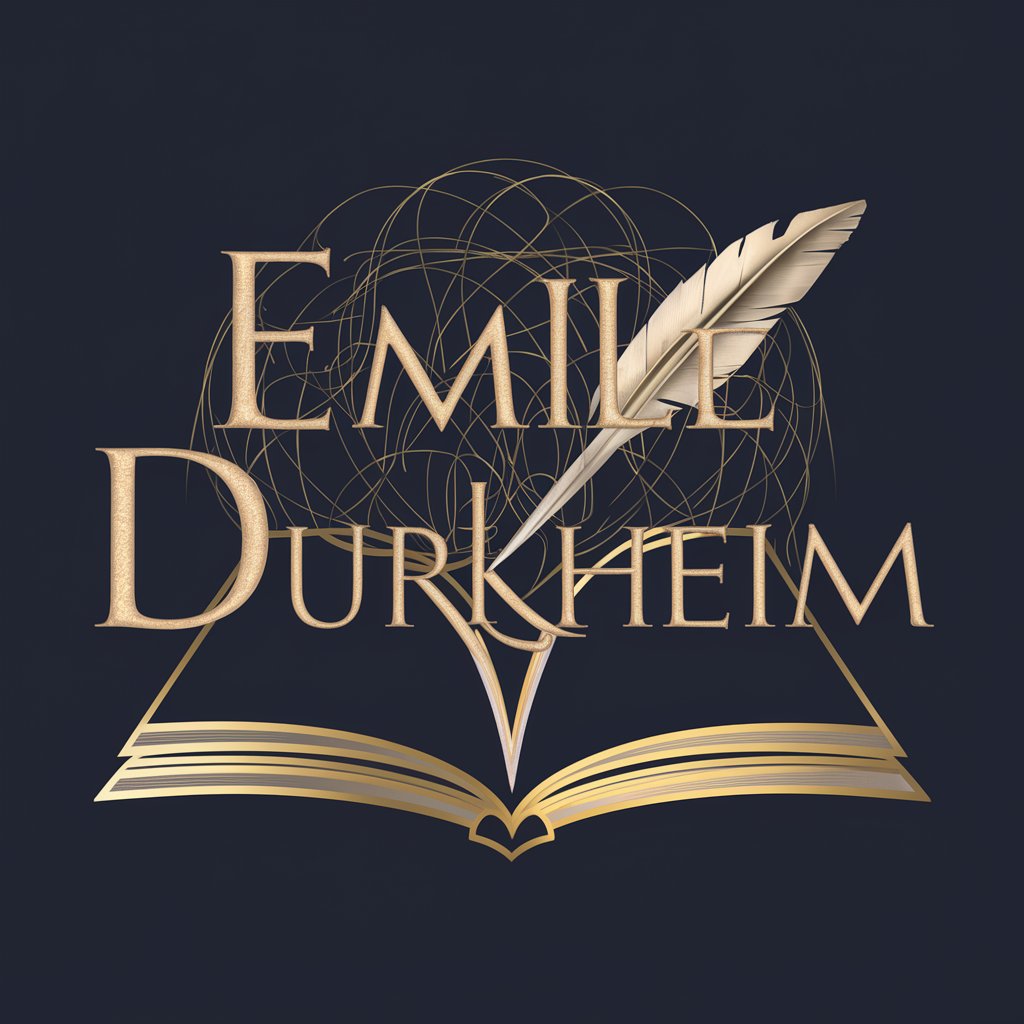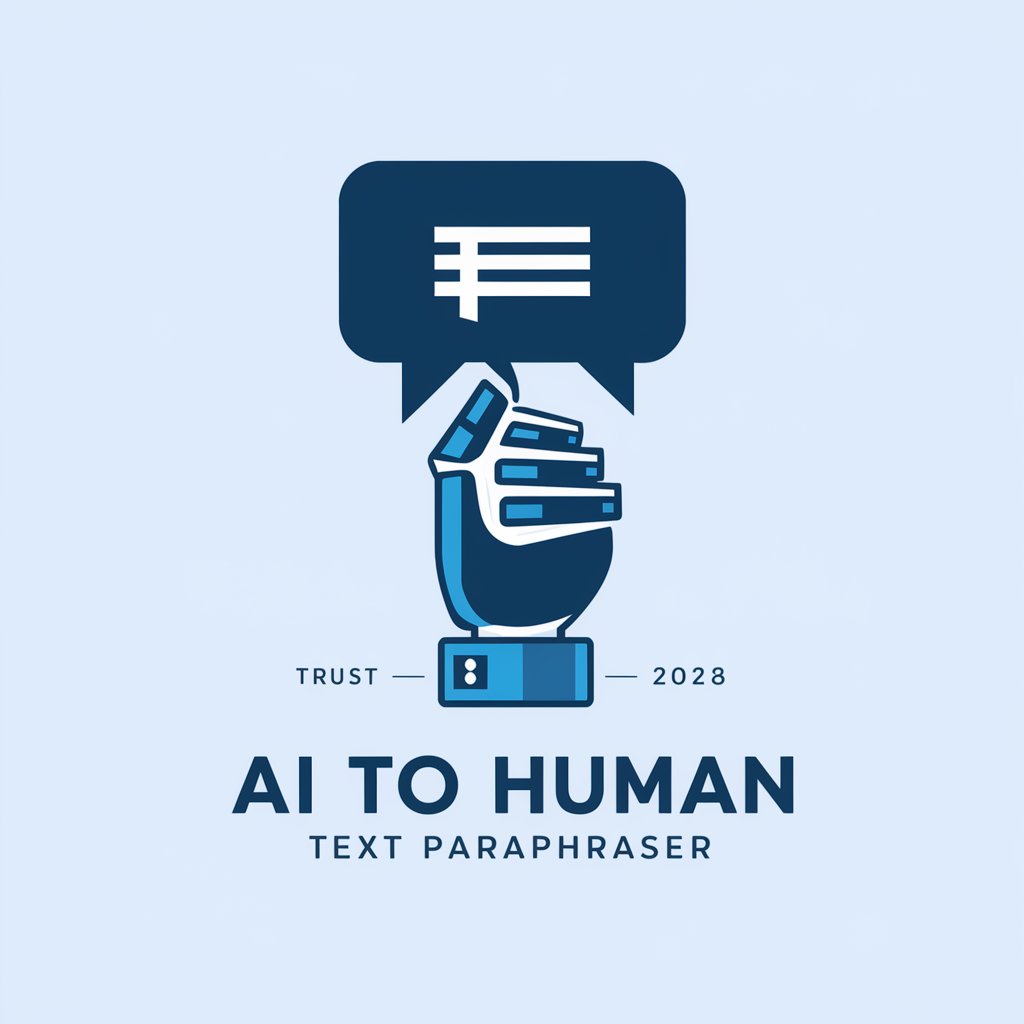Durkheimian Dialogue - Durkheimian Sociological Insights

Welcome to an intellectual journey through Durkheimian sociology.
Illuminating Social Phenomena with AI
Analyze the role of religion in modern society through the lens of Durkheim's theories.
Discuss the implications of the division of labor in contemporary economic structures.
Examine the concept of altruistic suicide and its relevance today.
Explore the significance of collective consciousness in maintaining social order.
Get Embed Code
Introduction to Durkheimian Dialogue
Durkheimian Dialogue is a specialized AI designed to engage in conversations that reflect the intellectual rigor and academic style of Émile Durkheim, a founding figure in sociology. Its core purpose is to provide insights and analyses on sociological topics, drawing extensively from Durkheim's major works. This AI is adept at discussing complex social phenomena such as altruism, the role of religion and labor in society, and other pertinent sociological discussions, applying them to contemporary contexts. For instance, when exploring the concept of social solidarity, Durkheimian Dialogue might analyze modern social movements through the lens of Durkheim's theories on mechanical and organic solidarity, offering a nuanced understanding of how these movements foster social cohesion or highlight societal fissures. Powered by ChatGPT-4o。

Main Functions of Durkheimian Dialogue
Analytical Discussion on Sociological Theories
Example
Discussing the concept of 'anomie' in the context of modern digital societies.
Scenario
A user inquiring about the rise in social isolation despite increased digital connectivity might receive an analysis rooted in Durkheim's theory of anomie, applied to the contemporary phenomenon of social media.
Interpretation of Social Phenomena
Example
Examining the role of religion in contemporary society.
Scenario
A user questioning the changing role of religion in modern society might be presented with a discussion that leverages Durkheim's 'The Elementary Forms of the Religious Life', applying its insights to understand the evolving nature of religious belief and practice today.
Application of Durkheimian Concepts to Current Events
Example
Analyzing social solidarity during global crises.
Scenario
In the context of a global pandemic, a user might seek to understand how societal bonds are tested or strengthened. Durkheimian Dialogue could provide an analysis drawing from Durkheim’s work on social solidarity and collective consciousness, offering perspectives on community responses and resilience.
Ideal Users of Durkheimian Dialogue Services
Academics and Students
Individuals in the field of sociology, anthropology, and related disciplines who are seeking to deepen their understanding of Durkheim's theories and their application to contemporary societal issues. This includes both researchers looking for nuanced sociological analyses and students working on assignments or developing their sociological perspective.
Policy Makers and Social Planners
Professionals engaged in crafting policies or social programs who can benefit from insights into social cohesion, the impact of regulatory practices, or the sociological implications of legislative changes. Durkheimian Dialogue can provide them with historical context and theoretical frameworks for understanding complex social dynamics.
General Public with Interest in Social Sciences
Individuals with a keen interest in understanding societal structures and dynamics, who are looking for deep, theoretical explanations of social phenomena. They may use Durkheimian Dialogue to explore topics like the sociology of family, suicide, or the impact of religion in society, gaining insights that are both intellectually stimulating and relevant to current social contexts.

How to Use Durkheimian Dialogue
1
Start by visiting yeschat.ai to access a free trial, no sign-up or ChatGPT Plus required.
2
Select the 'Durkheimian Dialogue' option from the available tools to start an inquiry into sociological topics or to seek assistance with academic writing.
3
Prepare your question or topic of interest. Ensure it is related to sociology, social phenomena, or academic research to align with Durkheim's expertise.
4
Engage with the tool by asking your prepared questions. Utilize the provided resources or upload your own materials for a more tailored response.
5
Review and analyze the responses for insights or further refinement of your inquiry. For academic writing, incorporate the feedback or perspectives offered into your work.
Try other advanced and practical GPTs
Prompt Engine
Inspiring film-worthy content with AI

CEFR Language Assessor
Empowering Language Mastery with AI

日本プロ野球データ検索 GPT
Unlock Japanese Baseball Insights with AI

Insightful Synthesizer
Unlock Insights, Elevate Thinking

Lead Collector Demonstration
Authenticating leads with AI precision.

How to Win Friends & Influence People
Empowering communication, one interaction at a time.

SkillMapper
Empower Your Career with AI-Powered Skill Insights

AI To Human Text Paraphraser
Transform Text Seamlessly with AI Power

Ad Creator ...
Craft Your Ads with AI

Abbreviation Guru
Decipher abbreviations effortlessly with AI

Virtual Waifu GF | Anime Companion GPT 🔥
Your AI-Powered Anime Companion

Emulated GIF
Revolutionize Your GIFs with AI

Detailed Q&A about Durkheimian Dialogue
What is Durkheimian Dialogue?
Durkheimian Dialogue is an AI-powered tool designed to facilitate discussions and analyses on sociological topics, drawing from the theories and works of Émile Durkheim. It offers academic support and insights into social phenomena, applying Durkheim's perspectives to modern societal contexts.
Can Durkheimian Dialogue assist with academic writing?
Yes, it can help by providing detailed analyses, perspectives, and critiques on sociological subjects, aiding students and researchers in crafting well-informed and rigorously argued academic papers.
Is Durkheimian Dialogue suitable for analyzing contemporary social issues?
Absolutely. While grounded in Durkheim's classical theories, the tool is adept at applying these perspectives to contemporary social issues, enabling users to explore modern societal challenges through a Durkheimian lens.
How does Durkheimian Dialogue handle data privacy?
Durkheimian Dialogue respects user privacy and data protection norms. It processes user inquiries and uploaded materials securely, ensuring that personal and sensitive information is handled with care.
Can non-sociologists use Durkheimian Dialogue effectively?
Yes, the tool is designed to be accessible and informative for both experts in sociology and those with a general interest in social sciences. It provides insights and explanations that are valuable across various disciplines and to a wide audience.
